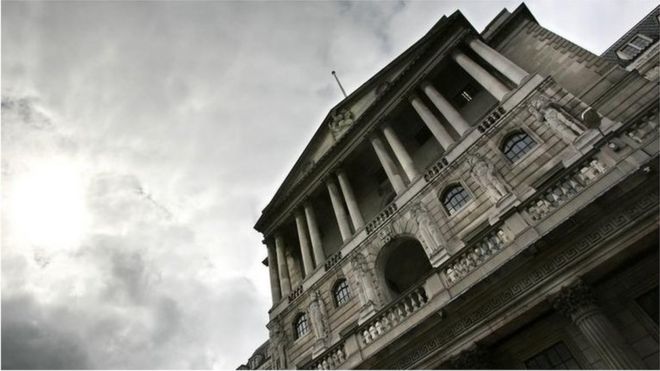The UK's biggest banks have been told to prepare for a wide range of challenges, as part of the Bank of England's latest stress tests.

One key test will be to prove they can manage any sudden slowdown in foreign interest in UK assets.
The banks will have to show they have sufficient resources in place to cope with any shocks.
The seven major lenders taking part are Barclays, HSBC, Lloyds, RBS, Santander UK, Standard Chartered and Nationwide.
Last year, RBS had to bolster its finances by about £2bn after failing the last stress test.
'Vulnerability'
The vote by the UK last year to leave the EU triggered a sharp drop in the value of the pound.
Setting out the stress test scenarios, the Bank of England said: "As highlighted in recent financial stability reports, the United Kingdom's large current account deficit creates a vulnerability to a reduction in foreign investor appetite for UK assets and increases in funding costs for real-economy borrowers."
The background against which it wants banks to test themselves includes "a sudden increase in the rate of return investors demand for holding sterling assets [which would mean higher interest rates on government bonds] and an associated fall in sterling".
Under its annual cyclical scenario, banks must show they can cope with a recession in the global economy and in the UK, interest rates peaking at 4%, and with house prices falling by a third.
The Bank's key interest rates currently stands at 0.25%.
Lenders have also been set a biennial "exploratory" scenario, which assumes "severe and synchronised" stress to the UK and global economy.
This second scenario assumes weak global trade, UK interest rates being cut to 0%, and increasing competition for the major lenders from smaller, challenger banks.
No comments:
Post a Comment